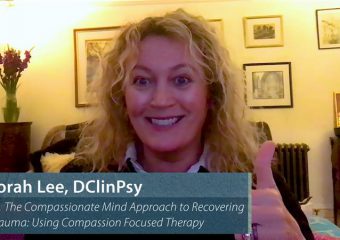Now that we’ve wrapped up the Clinical Application of Compassion program, I’d like to take a moment to thank you again for tuning in. 33,197 practitioners joined us for one or more sessions in the series. We believe the work being done on compassion is so important. That’s why we made it our mission to […]
3 Critical Insights to Share with Traumatized Clients (That Can Jumpstart Healing)
Some of our most difficult work is with clients who have suffered a traumatic experience . . . . . . especially when they’re trapped in a cycle of self-blame, beating themselves up for what they perceive to be wrong thoughts, wrong decisions, and wrong relationships. But according to Deborah Lee, DClinPsy, there are three […]
How to Rebuild Secure Attachment After Trauma
When a person experiences trauma, there’s one key factor that can play an important role in whether or not PTSD symptoms develop – and that’s secure attachment. But what happens when someone has never had a connection to a secure attachment figure? How can we help our client build the feelings of safety that are […]
Self-Compassion: The Secret to Reducing PTSD Symptoms?
One thing that can frequently increase the suffering of many patients with PTSD is shame. Even worse, shame can limit a patient’s treatment – even if they objectively know that there’s nothing to be ashamed of. But is there a way to trade self-judgment for self-compassion? And would that reduce a client’s symptoms? Asle Hoffart, […]
Could a Better Night’s Sleep Improve Treatment Outcomes for PTSD?
Is it possible that what happens with trauma patients at night could undermine all the hard work we’ve done with them during the day? Or asked another way, could improved sleep actually enhance our interventions with patients? We know that disrupted sleep patterns and nightmares are common symptoms of PTSD. But a team of researchers […]




